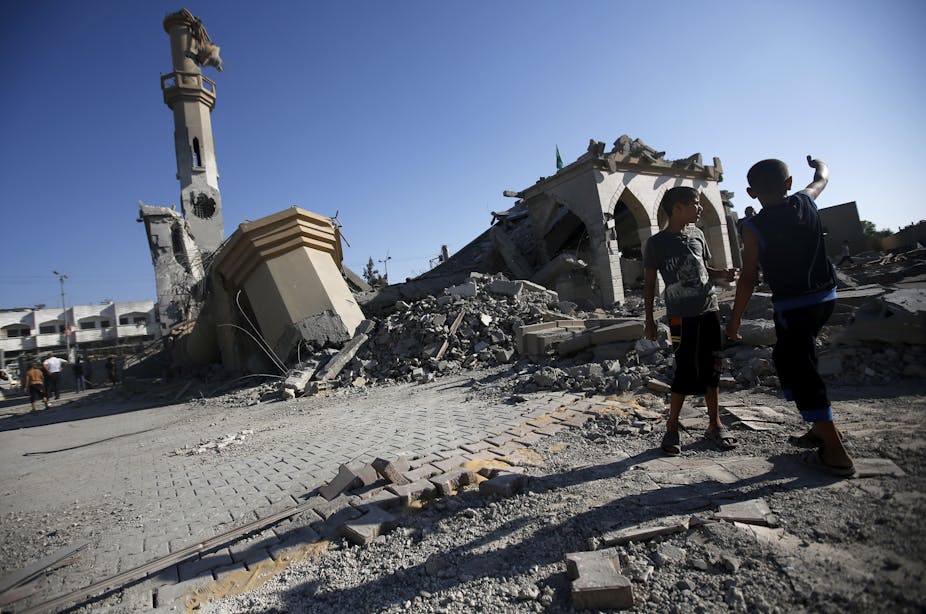While an open-ended ceasefire agreement is currently holding between Israel and the Palestinian factions, it is clear that the rule of international law has failed in Gaza. The international community did little to prevent the deaths of more than 2,100 Palestinians –- mostly civilians – and the destruction of countless buildings, homes and core infrastructure.
I want to suggest we turn to the debate that has been taking place in the public sphere in Israel and the UK on the role of emotions and empathy. Recent public expressions of empathy with Palestinians have been met with very different responses in the two countries. In the UK the controversy has centred on journalistic objectivity and impartiality while in Israel such public and private expressions have been silenced and presented as illegitimate.
The UK reaction
The debate in the UK following the outbursts of veteran journalists covering the war ran in parallel with tensions around British policy towards Israel and Palestine, and increased protests and expressions of solidarity with Palestinians in the public sphere. The clearest example of empathy and compassion in journalistic reporting emerged in Channel 4 anchorman Jon Snow’s decision to film a YouTube clip recording his heartfelt and emotional reaction to the scenes he witnessed while reporting from Gaza.
While some commentators argued strongly that Snow’s intervention breached the journalistic code of objective reporting, others praised his open display of humanity. They suggested that behind such outrage lay a set of values and principles which our politicians would do well to heed.
This concern over objective journalism is indeed an important one and is premised on professional ethics which should not be undermined. It also raised a deeper question around the degree to which objectivity is ever possible. As reflected in criticisms of BBC coverage of the war for being pro-Israel, for example, impartiality is hardly apolitical.
In philosophy and, more recently in international relations, a strong rebuttal has emerged regarding the privileged position granted to reason, objectivity, and the rational mind of the individual. In its place, we have neuroscientific evidence which points to the intertwined nature of emotion and reason in decision-making, philosophical and psychological evidence indicating the importance of emotion in making moral judgements, in shaping beliefs and values, and in forming our identity.
The Israeli reaction
Alongside this debate in the UK was a rather more antagonistic – and equally emotional – one in Israel. It has focused on the fact that artists, journalists or academics who have voiced concern, sympathy, empathy or grief for Gazans in the recent war, let alone those who questioned the policies of the Israeli government, have been attacked personally and professionally. They have been intimidated; accused of betrayal, treason and being anti-Israel; and been the victims of incitements to violence. This silencing of dissent and the suffering created on all sides reveals deeply worrying trends within Israeli society.
These developments raise a fundamental question about the role of emotions in politics. While emotions may contribute to destructive behaviour and beliefs, lead to the incitement of violence and harmful speech, they also contribute to forms of moral judgement, solidarity, resistance and revolution which are core to traditions of democracy and vibrant political life. In different ways, this was visible over the summer in both the UK and in Israel.
I am not suggesting that emotion should substitute for analytical news reporting nor that it always leads people to the correct political decisions. The point is that if we remove from public life the elements of humanity that journalists like Snow draw attention to, we move a step closer to greater dehumanisation of others.
The impartiality debate might be fading in the UK, but now that the ceasefire is in place, the question remains whether the empathy, anger and outrage which has been voiced so clearly in the public sphere in the UK and in other countries will have a longer term impact on western policies towards Israel and Palestine.

